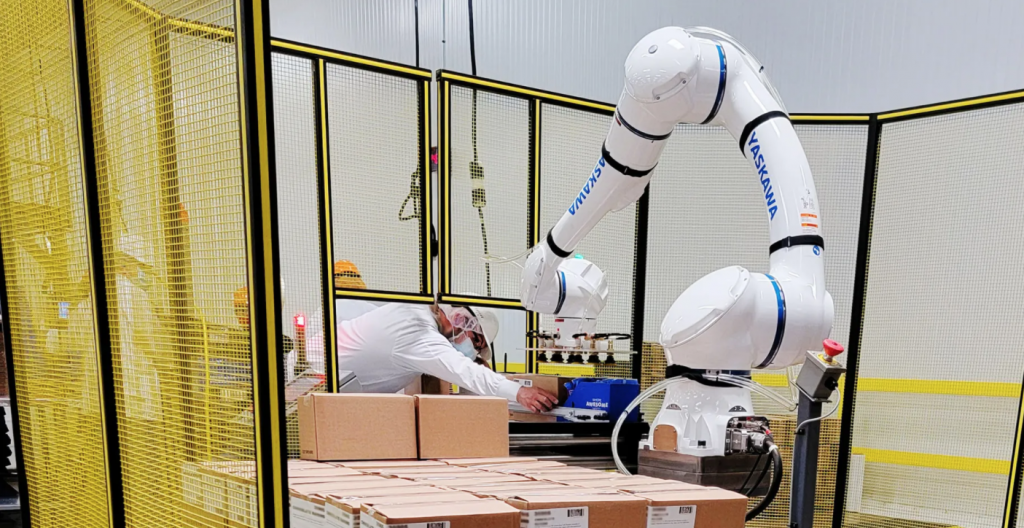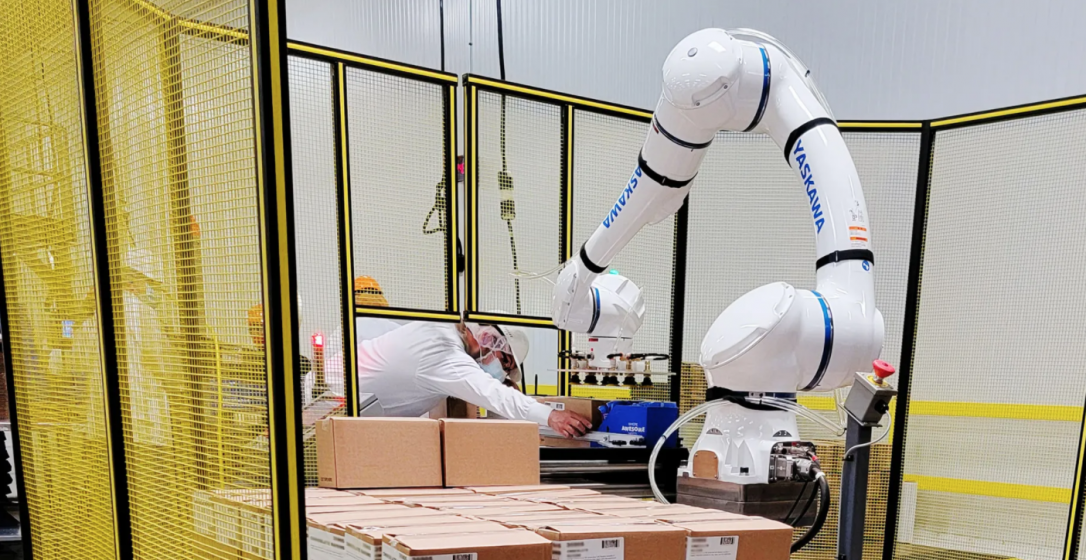
Formic is one of several companies renting out robots for factory and warehousing work. (Source: Formic)
Pay-As-You-Go Rental Companies Enable Small Manufacturers to Use Robots to Fill Jobs
Small companies have been the last to benefit from the robotic revolution that’s saved dollars and filled slots in assembly lines, but that’s changing. According to a story on Wired.com, new rental opportunities are allowing companies to use the mechanical workers and even pay them less than they would humans.
Citing Polar Manufacturing of Chicago as an example, the story outlined how the new robot rental model not only meant they didn’t have to invest $100,000 to program the robot, the company also was able to pay a company called Formic the equivalent of $8 an hour for use of the robot, instead of the $15 an hour that would go to a human worker. Instead, humans were sent to do other tasks.
Formic, based in Chicago, is one of several robotics companies leasing their robots to fill a growing demand as workers move on to other jobs that require less physical strain. According to the story:
“ ‘Anything that can help reduce labor count or the need for labor is obviously a plus at this particular time,’ says Steve Chmura, chief operating officer at Georgia Nut, a confectionery company in Skokie, Illinois, that has been struggling to find employees and also rents robots from Formic.”
The story also quotes Jeff Burnstein, president of the Association for Advancing Automation, who said smaller companies and warehouse fulfillment firms are enthusiastic about the new robotic business model.
“The International Federation of Robotics, an organization that tracks robot trends globally, projected in October that the number of robots sold last year would grow 13 percent. One market analysis from 2018 projected the number of industrial robots that are leased or that rely on subscription software will grow from 4,442 units in 2016 to 1.3 million in 2026.”
Locus Robotics, a company based in Wilmington, MA and Amsterdam, leases robots for use in warehouses. Dustin Pederson, CFO, says the company’s income has skyrocketed in the past year to meet the demand of e-commerce—a staggering sixfold increase.
read more at wired.com








Leave A Comment